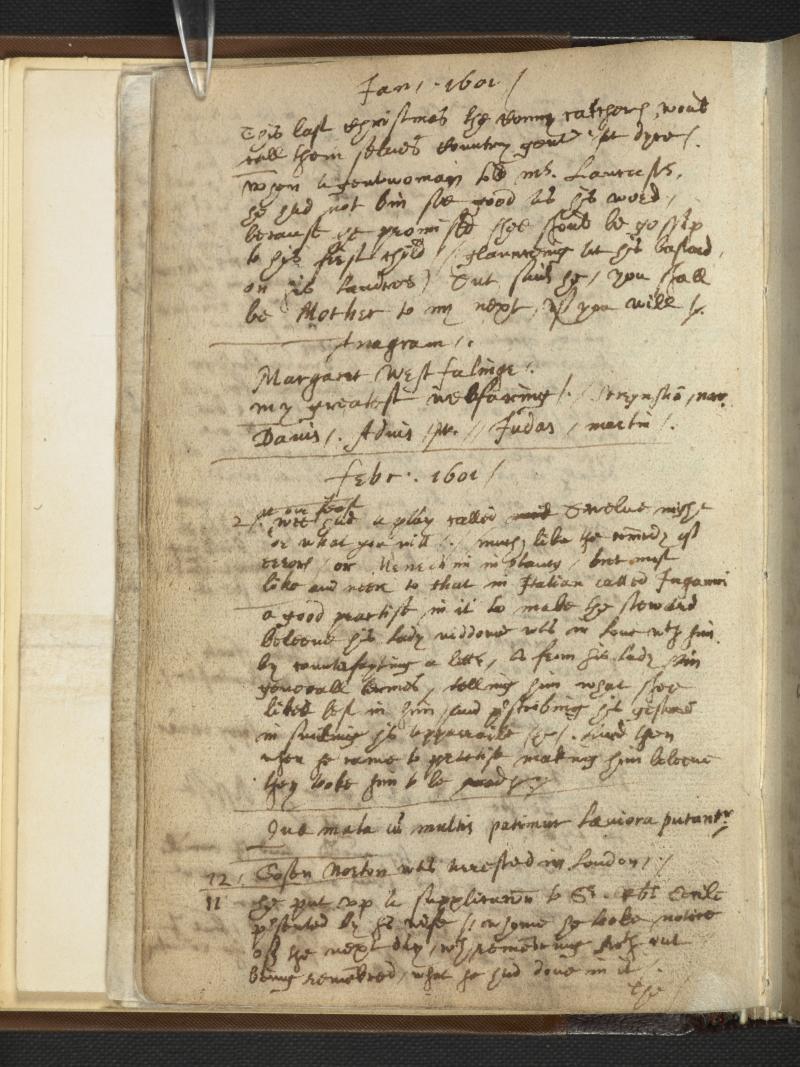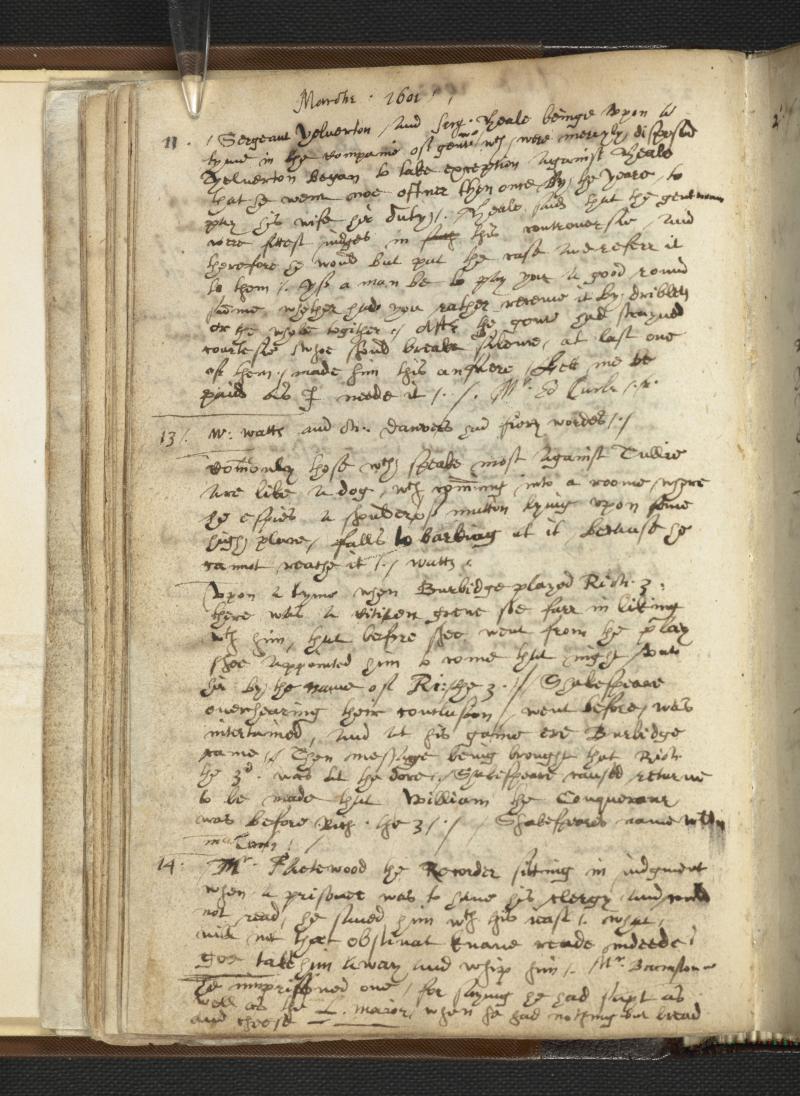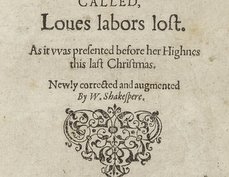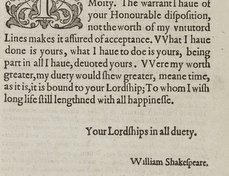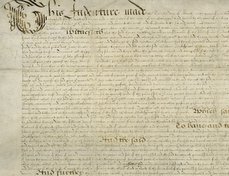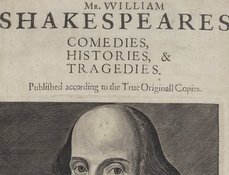From the collections of: THE BRITISH LIBRARY
Terms of use
The British Library has graciously contributed the above images to Shakespeare Documented under a Creative Commons Public Domain Mark.
Copyright status of the manuscript and unpublished Materials: The 1988 Copyright, Designs and Patents Act (as amended) states that unpublished literary and artistic works remain in copyright in the UK until at least 31 December 2039. Therefore important parts of the library’s collection remain in copyright, including very old manuscripts. However for unpublished material created many centuries ago and in the public domain in most other countries, the Library believes this material to be very unlikely to offend anyone. As an institution whose role it is to support access to knowledge, we have therefore taken the decision to release certain digitised images technically still in copyright in the UK under the Public Domain Mark.
Copy-specific information
Creator: John Manningham
Title: The Diary resumed, May 1602, with many Abstracts from Sermons; also Verses, and miscellaneous remarks, extracts from poems, &c.
Date: February 2 and March 13, 1602
Repository: The British Library, London, UK
Call number and opening: Harley MS 5353, fols. 12v & 29v
Heather Wolfe, "John Manningham's Diary: earliest mention of Twelfth Night and a Shakespeare anecdote," Shakespeare Documented, https://doi.org/10.37078/588.
British Library, Harleian MS 5353. See Shakespeare Documented, https://doi.org/10.37078/588.
The earliest mention of Shakespeare’s Twelfth Night is in a notebook of gossip, observations and sermon notes kept by John Manningham while a law student at Middle Temple, one of the Inns of Court in London. After seeing a private performance of the play at the Middle Temple, he observes that it resembled The Comedy of Errors, Plautus’s Roman play Menaechmi, and an Italian play called GI’ingannati. He then recounts his favorite subplot: Olivia’s steward Malvolio is tricked into thinking she loves him by a forged letter written by her servant Maria, which results in his public humiliation and imprisonment. The scene in which Malvolio parades before Olivia, smiling largely in cross-gartered yellow stockings, is a favorite of audiences today as well.
Five weeks later (and in the same manuscript), Manningham records an amusing story: Shakespeare had overheard Richard Burbage and a woman planning a tryst after a performance of Shakespeare’s Richard III. When Burbage went to meet the woman, Shakespeare was already with her, and sent a cheeky message to him that “William the Conqueror was before Richard III.” To clarify the joke, Manningham adds a reminder that Shakespeare’s first name was “William.” He cites the source of this anecdote at the end of the entry, but the name is difficult to read. Scholars have long debated whether it reads "Mr. Touse," that is, William Towse, a frequent informant in the diary and a member of the Inner Temple, or Manningham's roommate Edward Curle, another name that appears frequently. Curiously, Curle tells a similar story about Thomas Bodley, founder of the Bodleian Library, who, learning that "a rich widow" was about to be matched to someone else, intercepted her and won her hand in marriage (fol. 46).
A deleted word in the first line of the entry has not been included in previous published editions: “a play called mid Twelue night…” (In his 1976 edition of the diary, Robert Parker Sorlien notes the struck-through word in a footnote on p. 12). Did Manningham accidently begin referring to another Shakespeare play, Midsummer Night’s Dream, before correcting himself?
The notebook was first noticed by John Payne Collier in his Annals of the Stage, vol. 1, p. 320 (1831).
[fol. 12v]
February 2, 1602
At our feast we had a play called Mid Twelfth Night, or What You Will. Much like the Comedy of Errors or Menaechmi in Plautus, but most like and near to that in Italian called Inganni.
A good practice in it to make the steward believe his lady widow was in love with him by counterfeiting a letter, as from his lady, in general terms, telling him what she liked best in him and prescribing his gesture in smiling, his apparel, etc. And then when he came to practice, making him believe they took him to be mad.
[fol. 29v]
March 13, 1602
Upon a time when Burbage played Richard 3, there was a Citizen grew so far in liking with him, that before she went from the play she appointed him to come that night unto her by the name of Richard the 3rd. Shakespeare, overhearing their conclusion, went before, was entertained, and at his game ere Burbage came. Then message being brought that Richard the 3rd was at the door, Shakespeare caused return to be made that William the Conqueror was before Richard the 3rd. Shakespeare’s name William.
Febr: 1601 /
_______
2. ^at our feast wee had a play called mid Twelue night
or what you will /./ much like the commedy of
errores or Menechmi in Plautus / but most
like and neere to that in Italian called Inganni
________
a good practice in it to make the steward
beleeue his lady widdowe was in loue with him
by counterfayting a letter, as from his lady / in
generall termes, telling him what shee
liked lest in him and prescribing his gesture
in smilinge his apparraile /&c/. and then
when he came to practise making him beleeue
they tooke him to be mad ./.
_________________________________
Qua mala cum multis patimur lauiora putantur./
[fol. 29v]
... Vpon a tyme when Burbidge played Rich. 3:
there was a Citizen greue soe farr in liking
with him, that before shee went from the play
shee appointed him to come that night vnto
hir by the name of Ri: the 3. / Shakespeare
ouerhearing their conclusion, went before, was
intertained, and at his game ere Burbidge
came // Then message being brought that Rich.
the 3d was at the dore./ Shakespeare caused returne
to be made that William the Conquerour
was before Rich. the 3 /./ Shakespeares name William
Mr. [Tous or Curle] /
Written by Heather Wolfe
Sources
J. Bruce, ed., Diary of John Manningham, o.s. 99 (Camden Society, 1868).
Oxford Dictionary of National Biography “Manningham, John (c.1575–1622),” by P. J. Finkelpearl, accessed January 18, 2016, doi:10.1093/ref:odnb/17981.
Robert Parker Sorlien, ed., The diary of John Manningham of the Middle Temple, 1602–1603 (Hanover, NH, 1976).
Last updated May 17, 2020

